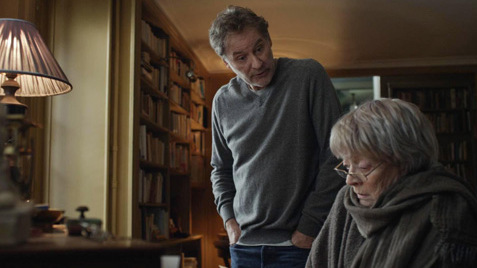Pride (MA)
Directed by Matthew Warchus

When Margaret Thatcher announced plans to close 20 coal mines across Britain in 1984, the mineworkers went on strike. Things were extremely tough for the miners and their families but people rallied behind them. A group of gay men and lesbians in London started to shake buckets to raise money and held ‘Pits and Perverts’ concerts that raised huge amounts of money. They approached a small village in South Wales to offer their support. It was a clash of cultures but both groups were being demonised by the press, the police and the public. Lifetime friendships were made as people discovered their common humanity.
Several of the characters are drawn from real people. The youthful and enthusiastic Mark led Lesbians and Gays Support the Miners before facing an even larger battle of his own. Colourful Jonathan (Dominic West) showed how disco dancing can break down barriers. The homosexual consent was 21 and 20 year old Joe (George MacKay) struggles to break away from his unaccepting family. Seventy-something Cliff (Bill Nighy) finally admits his sexuality and Hefina (Imelda Staunton) explores dildos, centrefolds and leather bars. Housewife Sian James (Jessica Gunning) discovered her leadership qualities and is now a Labor Party Member of Parliament.
Kill the Messenger (M)
Directed by Michael Cuesta

In 1996, a journalist for the San Jose Mercury News uncovered an incredible story that the major papers had missed. Gary Webb (Jeremy Renner) received information that the United States government was involved in the importation and sale of massive amounts of cocaine from South America. Not only that, but it was using the profit to fund the rebel fighters in the Nicaraguan civil war – a battle that the American Congress had refused to fund. Part political thriller, part horror story, the film is based on Gary Webb’s book ‘Dark Alliance: The CIA, The Contras and The Crack Cocaine Explosion’ and Nick Schou’s book about Gary Webb.
This dedicated Pulitzer Prize winning reporter follows the story from a Californian prison to Nicaragua … to the corridors of power in Washington DC. Instead of being lauded as a hero for the story of the century Webb is intimidated, his family and his life are threatened and he becomes increasingly isolated. This actually happened and the legacy of harm remains from a criminal enterprise that was acceptable collateral damage because it aided rebels fighting a Cold War battle 2,000 miles from the U.S. border – despite Congress having expressly blocked that approach.
My Old Lady (M)
Directed by Israel Horovitz

New Yorker and failed writer Mathias Gold (Kevin Kline) is childless and penniless, with three divorces under his belt, when he inherits a grand old apartment in Paris from his estranged father. With hardly any French and no money for a return airfare, he travels to Paris to sell the apartment to pay his debts. Matthias is shocked to find 92 year-old Mathilde Girard (Maggie Smith) and her protective daughter Chloé Girard (Kristin Scott Thomas) in residence. Under a French law known as viager, he can only take possession of the property when Mathilde dies and he must also make monthly payments to her – but Mathilde allows Mathias to stay in the apartment while he sorts out what he wants do.
Based on his play, Horovitz’s film is a charming and sophisticated drama which starts off with plenty of humour before tapping into much more serious passions as secrets are revealed and lives are examined. Intense conversations in small rooms are given emotional depth by the three magnificent veteran actors. Initial hostilities are dissolved when the characters discover a shared history. Mathias and Chloé find they have much in common and acknowledge how their lives have been propelled by others.
Lezly Herbert




